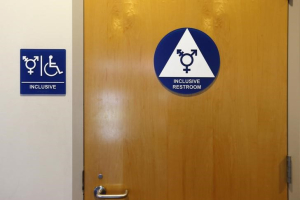The Massachusetts' Senate began debating a bill protecting the rights of transgender people on Thursday, a move some see as a rebuke to a North Carolina law (HB2) requiring people to use bathrooms corresponding to the sex on their birth certificates.
The bill, which would make Massachusetts the 18th U.S. state to prohibit discrimination based on gender identity, has strong support in the Democratic-controlled legislature, although Republican Governor Charlie Baker has not said whether he would sign it.
The Obama administration and North Carolina are battling in court over the legality of that state's law, passed in March, which the White House contends violates the 1964 Civil Rights Act. Backers of that law say it will protect women and girls from predators.
"When a state like North Carolina takes the action that it did, that really helps to make the argument here," said Peter Ubertaccio, director of the Joseph Martin Institute for Law & Society at Stonehill College.
State Senator Sonia Chang-Diaz, the Massachusetts bill's sponsor, noted the state had a long history of promoting civil rights, dating back to an 1865 law ensuring that black Americans would have equal access to public spaces and continuing through becoming the first U.S. state to legalize gay marriage in 2004.
"In Massachusetts we are civil rights pioneers by nature ... and that is why it is particularly difficult to fathom how in 2016 we are still fighting for public accommodations," Chang-Diaz said.
Baker, a socially liberal Republican, has said he will make a decision when he sees the final language.
"Governor Baker believes no one should be discriminated against based on gender identity," Baker spokeswoman Lizzy Guyton said in an email, adding the governor "will carefully review a bill should the legislature act."
Opponents of the measure argue that allowing people to use bathrooms or locker rooms that do not correspond with their birth sex raises a risk of sexual assault.
"The 'bathroom bill' will force women to undress or shower in the presence of men," said Andrew Beckwith, president of the Massachusetts Family Institute. "This violates a fundamental right to personal privacy."
Supporters contend the strong business reaction to North Carolina's measure, with companies including PayPal Holdings and Deutsche Bank halting plans to expand, would help the Massachusetts bill's prospects.
"That gave the Republicans, including the governor, a bit of a warning," said Deborah Shields, executive director of MassEquality.

















